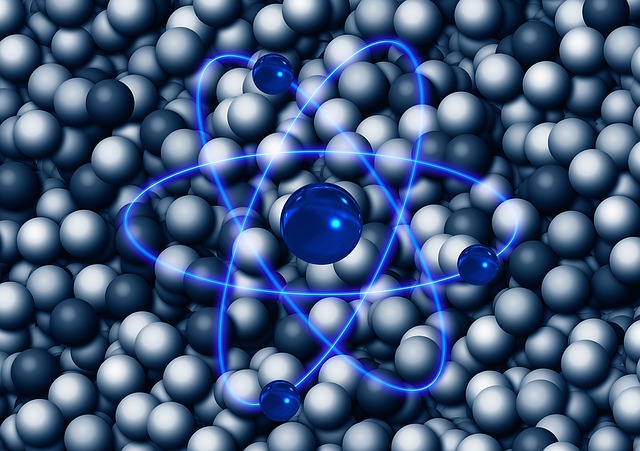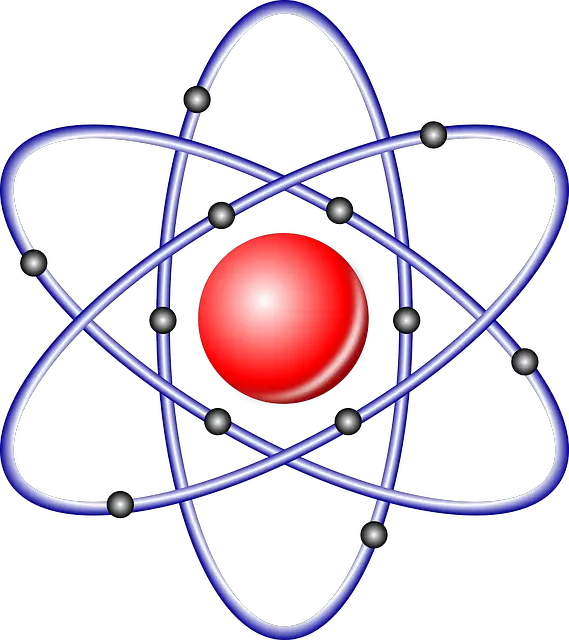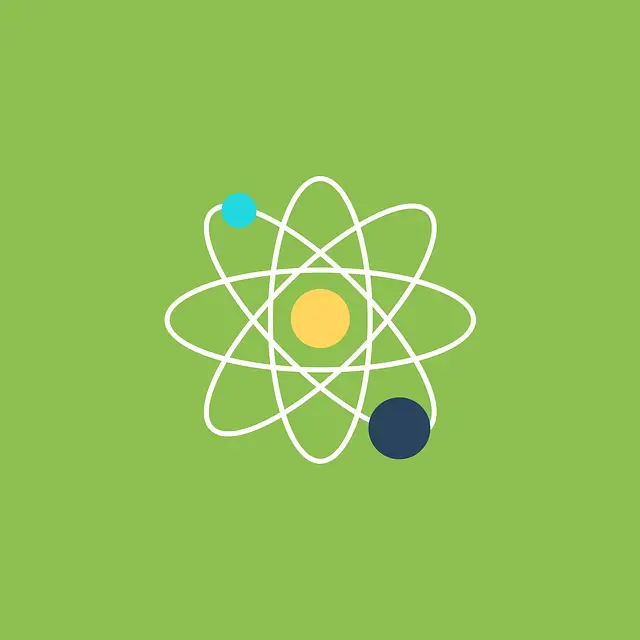Neutrons and protons are both subatomic particles. Neutrons have no electric charge, while protons have a positive electric charge. Neutrons are slightly heavier than protons. Both neutrons and protons are found in the nucleus of atoms.
Neutrons
(Image by Gerd Altmann from Pixabay )

Neutrons are subatomic particles that have no electrical charge (they are electrically neutral) and are found in the nucleus of an atom, along with protons. They have a mass slightly greater than that of protons, and are held together in the nucleus by the strong nuclear force. Neutrons play a key role in determining the stability and properties of atomic nuclei, and are involved in a range of phenomena, from nuclear reactions to the formation of elements in stars. They are also used in various applications, such as in nuclear power generation, neutron scattering experiments, and medical imaging.
Protons
(Image by OpenClipart-Vectors from Pixabay )

Protons are subatomic particles that have a positive electrical charge and are found in the nucleus of an atom, along with neutrons. They have a mass slightly less than that of neutrons, and are held together in the nucleus by the strong nuclear force. The number of protons in an atom’s nucleus determines its atomic number, which in turn determines the element to which it belongs. Protons play a key role in determining the chemical properties of elements, including their reactivity and bonding behavior, and are involved in a range of phenomena, from nuclear reactions to the formation of stars. They are also used in various applications, such as in particle accelerators, proton therapy for cancer treatment, and in nuclear magnetic resonance (NMR) spectroscopy for chemical analysis.
Neutrons Vs. Protons – Key differences
Electrical charge: Neutrons are electrically neutral, meaning they have no charge, while protons have a positive charge.
Mass: Neutrons have a slightly greater mass than protons.
Location: Neutrons are found in the nucleus of an atom, along with protons, while electrons are found in the electron cloud outside of the nucleus.
Role in determining atomic properties: The number of protons in an atom’s nucleus determines its atomic number, which in turn determines the element to which it belongs. Protons also play a key role in determining the chemical properties of elements, including their reactivity and bonding behavior. Neutrons, on the other hand, play a key role in determining the stability and properties of atomic nuclei.
Radioactivity: Protons are not directly involved in radioactivity, while neutrons can be involved in nuclear reactions that produce radioactivity.
Neutrons and protons share some similarities, such as their location in the nucleus and their involvement in atomic and nuclear phenomena, they differ in their electrical charge, mass, and role in determining the properties of atoms and their nuclei.
What are the differences between neutrons and electrons?
Neutrons and protons are both subatomic particles, but there are some key differences between them. For one, neutrons have no electrical charge, while protons have a positive charge. This means that neutrons can easily bind with other atoms, even if those atoms have different charges. Protons, on the other hand, will only bind with other atoms that have the same charge. Additionally, neutrons are slightly heavier than protons.
What is the difference between nucleus and proton?
The main differences between neutrons and electrons are that neutrons have no charge and a much greater mass than electrons, while electrons have a negative charge and are found outside of the nucleus in the electron cloud.
Are neutrons equal to protons or electrons?
The answer to this question depends on what you are compare neutrons to. Neutrons and protons have the same mass, but electrons have a much smaller mass. So, if you are comparing neutrons to protons, then they are equal. But if you are comparing neutrons to electrons, then neutrons are much heavier.
Why are neutrons neutral?
Neutrons are electrically neutral particles, meaning they have no electric charge. This is in contrast to protons, which have a positive electric charge. The neutrality of neutrons makes them important constituents of atoms, since they can bind with protons (which are also neutral) to form the nuclei of atoms. The neutrality of neutrons also allows them to be used in nuclear reactors and other devices where charged particles would be undesirable.
What is the role of neutrons in an atom?
The role of neutrons in an atom is primarily to help hold the nucleus together through the strong nuclear force. The nucleus of an atom is made up of protons and neutrons, and it is the presence of neutrons that allows for the stable existence of atomic nuclei. Without neutrons, the positively charged protons in the nucleus would repel each other, causing the nucleus to break apart.
In addition to their role in holding the nucleus together, neutrons also affect the properties of atoms and their nuclei. For example, the number of neutrons in an atom can affect its stability, with atoms having too few or too many neutrons being more likely to undergo radioactive decay. Neutrons can also be involved in nuclear reactions, including fusion and fission reactions, which can release large amounts of energy.
Neutrons also play a key role in nuclear physics and technology. For example, neutrons can be used to probe the internal structure of materials and to generate images of the human body in medical applications. Neutron radiation is also a hazard in nuclear power plants and other applications involving radioactive materials, and understanding the behavior of neutrons in these contexts is important for ensuring safety.
Why hydrogen has no neutron?
Hydrogen has no neutron because it has the simplest atomic structure among all the elements. It consists of just one proton in the nucleus and one electron in the electron cloud, with no neutrons present. This simplicity makes hydrogen unique among the elements, as all other elements have neutrons in their nuclei (except for helium-3, which has two protons and one neutron). The absence of neutrons in hydrogen also means that it has a low atomic mass compared to other elements, making it useful in a variety of applications, from fuel for combustion engines to use in medical imaging.
Are atoms and neutrons the same?
No, atoms and neutrons are not the same. An atom is the basic unit of matter, consisting of a central nucleus made up of protons and neutrons, surrounded by a cloud of negatively charged electrons. Neutrons, on the other hand, are subatomic particles that are found in the nucleus of an atom along with protons. They have a neutral electrical charge and play a key role in determining the stability and properties of atomic nuclei. While neutrons are a fundamental component of atoms, they are not the same thing as atoms themselves.
Featured Image By – Harisankar Sahoo from Pixabay








